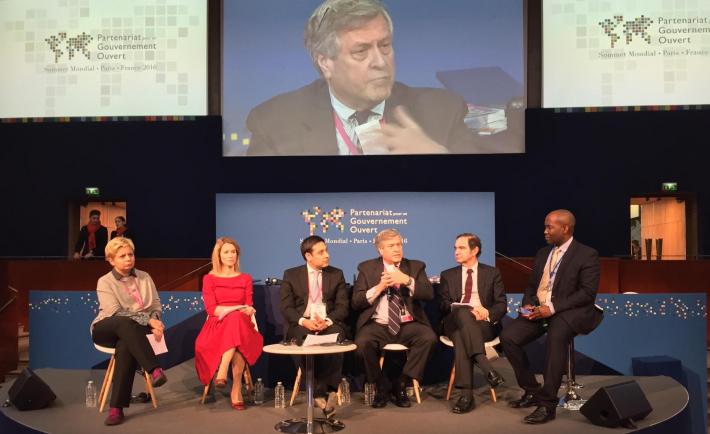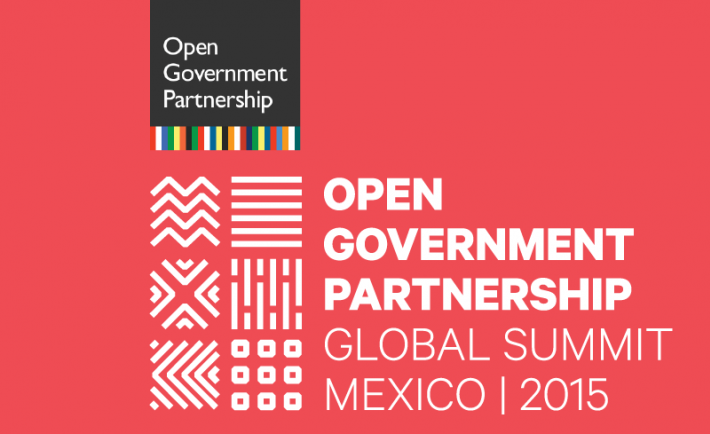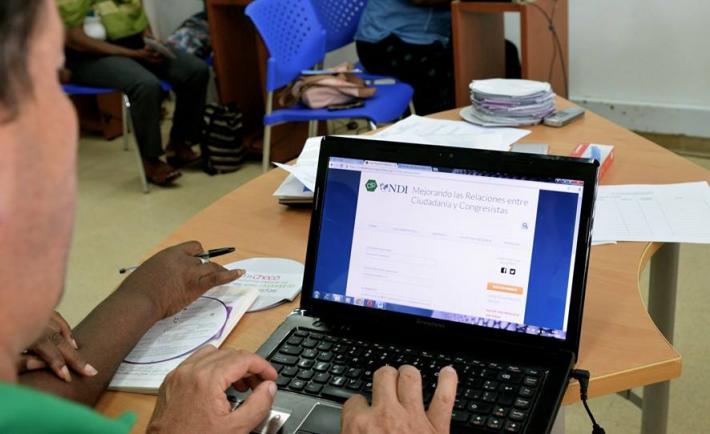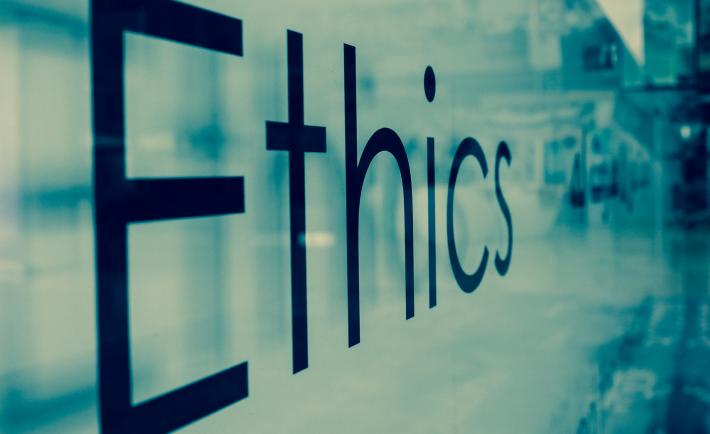
At the OGP Summit in Paris, NDI President Ken Wollack joins legislative and civil society leaders from Chile, Colombia, Estonia, Serbia, and South Africa to discuss the role of legislatures in OGP.
Since its launch in 2011, many have urged the Open Government Partnership (OGP) to expand beyond narrow definitions of the term "government." Legislators, mayors, and others argued that OGP’s transformational potential was tied in part to its ability to accommodate different branches and levels of government -- not only the executive, as is the case in many member countries. A truly open government includes an accountable executive branch, trusted legislatures, and responsive governance at all levels. This was an ambitious vision, but many argued that OGP’s ability to deliver better democracy and better governance was tied to its continued growth and expansion. The OGP Summit in Paris, which took place last month and convened hundreds of open government champions and activists from around the world, clearly indicated that OGP is beginning to deliver on this ambitious agenda.



